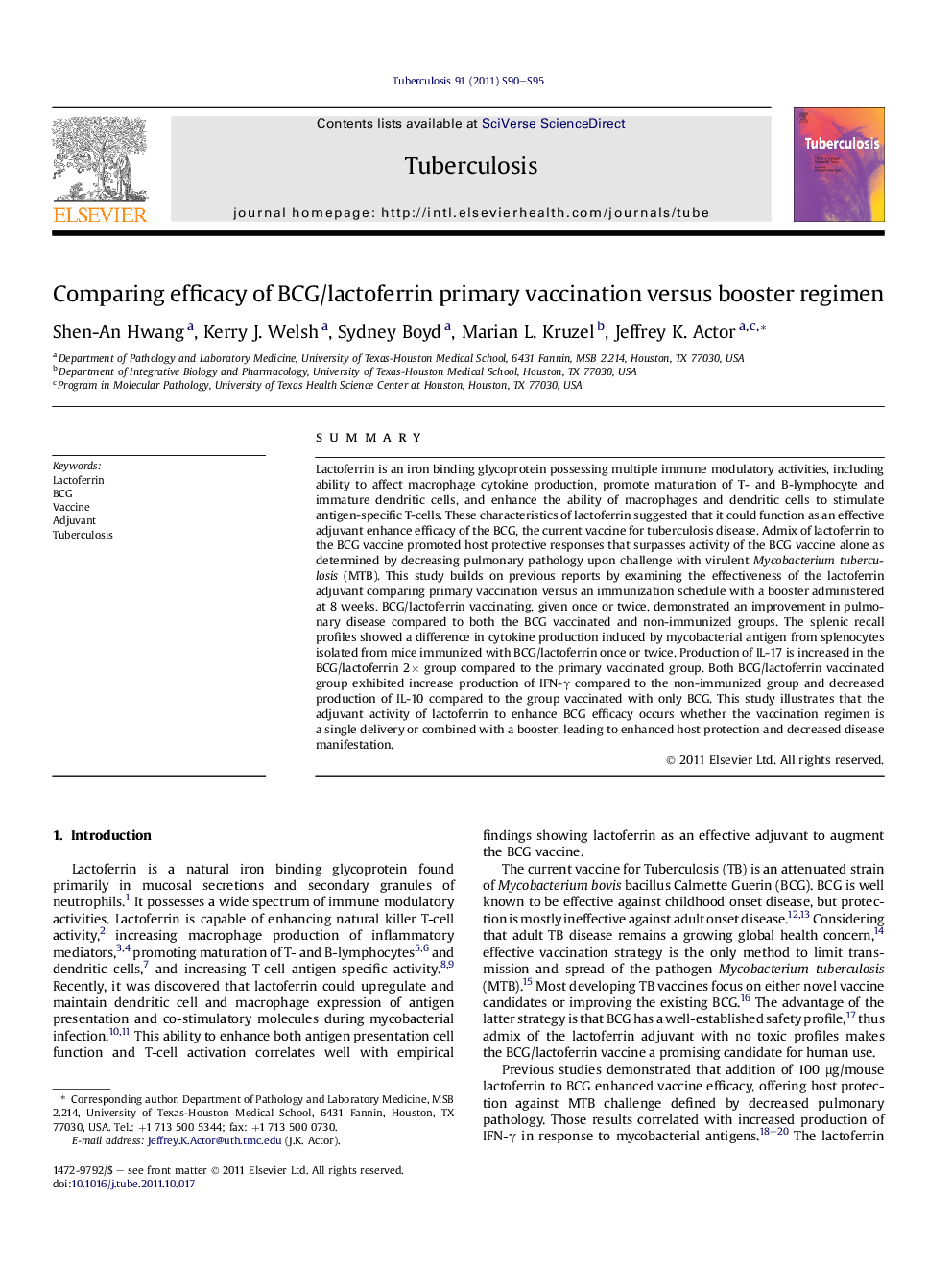| Article ID | Journal | Published Year | Pages | File Type |
|---|---|---|---|---|
| 2401643 | Tuberculosis | 2011 | 6 Pages |
SummaryLactoferrin is an iron binding glycoprotein possessing multiple immune modulatory activities, including ability to affect macrophage cytokine production, promote maturation of T- and B-lymphocyte and immature dendritic cells, and enhance the ability of macrophages and dendritic cells to stimulate antigen-specific T-cells. These characteristics of lactoferrin suggested that it could function as an effective adjuvant enhance efficacy of the BCG, the current vaccine for tuberculosis disease. Admix of lactoferrin to the BCG vaccine promoted host protective responses that surpasses activity of the BCG vaccine alone as determined by decreasing pulmonary pathology upon challenge with virulent Mycobacterium tuberculosis (MTB). This study builds on previous reports by examining the effectiveness of the lactoferrin adjuvant comparing primary vaccination versus an immunization schedule with a booster administered at 8 weeks. BCG/lactoferrin vaccinating, given once or twice, demonstrated an improvement in pulmonary disease compared to both the BCG vaccinated and non-immunized groups. The splenic recall profiles showed a difference in cytokine production induced by mycobacterial antigen from splenocytes isolated from mice immunized with BCG/lactoferrin once or twice. Production of IL-17 is increased in the BCG/lactoferrin 2× group compared to the primary vaccinated group. Both BCG/lactoferrin vaccinated group exhibited increase production of IFN-γ compared to the non-immunized group and decreased production of IL-10 compared to the group vaccinated with only BCG. This study illustrates that the adjuvant activity of lactoferrin to enhance BCG efficacy occurs whether the vaccination regimen is a single delivery or combined with a booster, leading to enhanced host protection and decreased disease manifestation.
